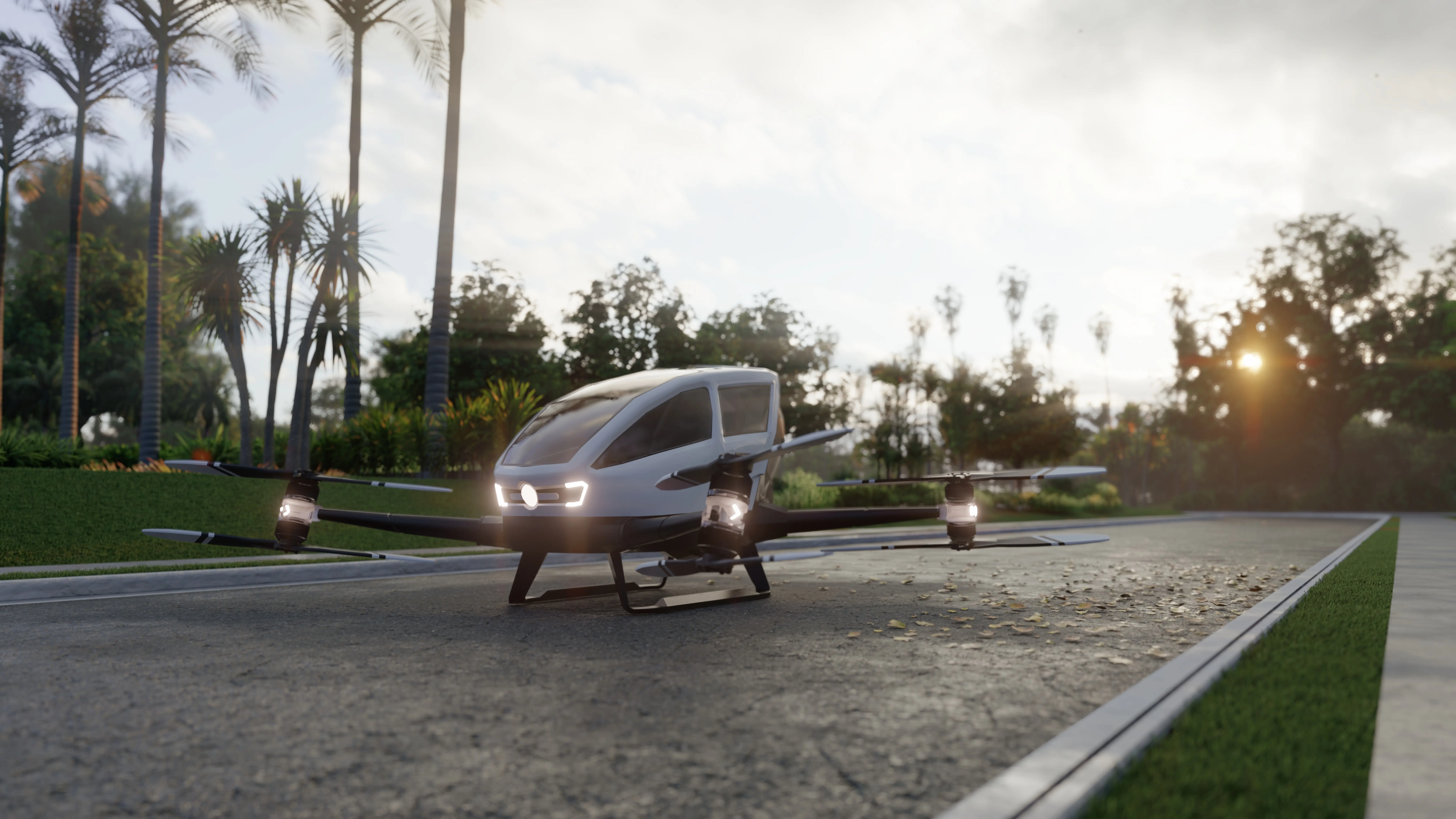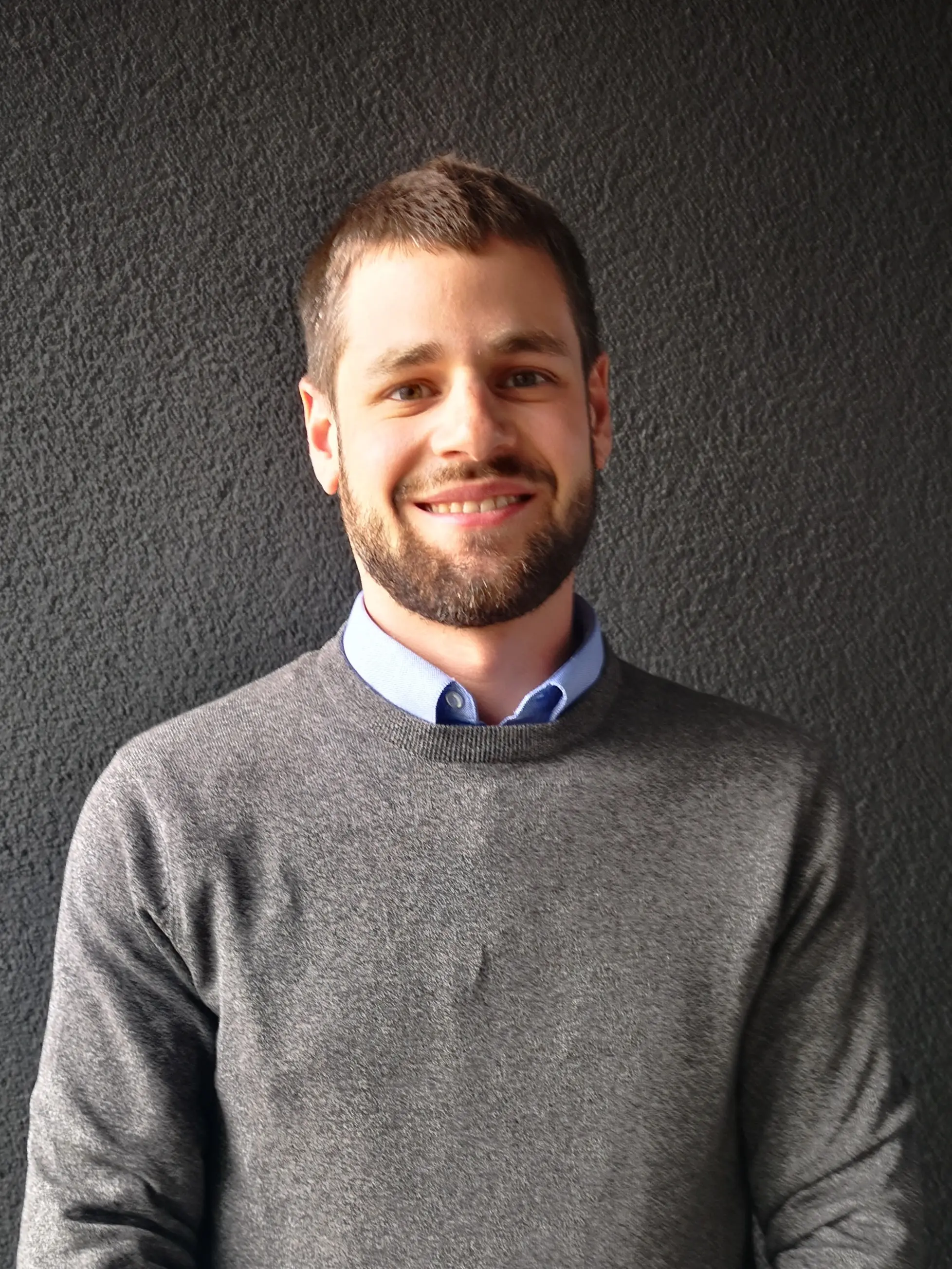Taxi Drones in the Zurich Area: ZHAW Graduate Fabiano Ulmke Receives Award for Master's Thesis in Industrial Engineering

Fabiano Ulmke developed a concept for the economic operation of On-Demand taxi drones in the Zurich region as part of his master's thesis. This achievement impressed the Association of Business Engineers (VWI) Switzerland, which awarded him the prize for the best thesis in Business Engineering.
ZHAW graduate Fabiano Ulmke estimates that by 2035, Switzerland will see the emergence of the first air-taxis, drones designed to transport passengers. For his master's thesis in Business Engineering, conducted on behalf of Lucerne-based aerospace company Aurora Swiss Aerospace, he developed a concept for the operation of air-taxis in the Zurich region. This involved analyzing available demographic, economic, and mobility data to define potential take-off and landing locations for an air-taxi service. His achievement did not go unnoticed. The Association of Business Engineers (VWI) Switzerland subsequently recognized his work as one of the best theses in Business Engineering in 2023. For Reto Knaack, the Program Director for the Master of Science at ZHAW School of Engineering, this award is also a testament to the program's strong practical orientation: 'We congratulate Fabiano Ulmke on his outstanding master's thesis. Once again, this highlights that forward-thinking and practical master's theses are the hallmark of the Master of Science in Engineering at ZHAW School of Engineering.'

That Fabiano Ulmke chose to write his master's thesis in the field of aviation comes as no surprise. His interest in aviation dates back to his childhood, where he built model airplanes and even took the pilot's seat at a young age. 'I began working on my PPL (private pilot license) at the age of 15, even before getting my driver's license,' he recalls with a smile. Later on, he pursued an internship with aircraft manufacturer Pilatus.
However, finding a suitable topic in this domain proved to be his initial challenge, exacerbated by the lack of calls for master's theses within the aviation sector during the COVID-19 pandemic. 'But with the guidance of Manuel Renold, who leads the Traffic and Transport Engineering department at the Institute for Data Analysis and Process Design (IDP), I eventually found a topic that intrigued me,' describes Ulmke, outlining his path towards his Master of Science in Engineering (MSE) thesis. The Luzern-based aerospace company Aurora Swiss Aerospace commissioned him to develop a concept for an On-Demand Urban Air Mobility network using eVTOL drones in the Zurich region. This meant that Fabiano Ulmke had to analyze traffic data and other public information to assess the economic viability of a network with drones that individuals could request for transportation to landing sites such as Zurich Airport or other key locations. 'I deliberately selected landing locations in areas with a higher income demographic since prices for commuting with these drones would be relatively high initially,' explains Ulmke. 'The underlying idea is to have the affluent individuals pre-finance such innovation initially, and if the service gains traction, investments will follow, making it accessible to a broader audience,' Manuel Renold adds. This principle of the trickle-down effect is regularly applied in innovations. For example, a German car manufacturer initially installed automatic windshield wipers in luxury models, and only as the technology became more affordable, it found its way into lower-tier vehicles.
«I was thrilled with the Master's program at ZHAW. It was much less rigidly structured compared to the Bachelor's program and offered greater flexibility in choosing courses.»
Scarcity of available data
For the development of the concept, Fabiano Ulmke had very limited existing literature to rely on. 'There was practically no prior work on this topic for me to build upon. I had to start from scratch,' Ulmke explains. 'There is a lack of usable data on passenger flows in the Zurich region compared to cities like New York, where services like Uber provide such data,' notes the ZHAW graduate. 'We could only utilize the traffic data from the Zurich Transport Network (ZVV).'
Furthermore, the operation of the network requires its own infrastructure. 'Drones can't simply land in people's front yards,' Ulmke says. 'Dedicated landing sites that are suitable for drones and equipped with access controls and security measures are needed, especially if there are cross-border flights,' the 30-year-old elaborates. 'However, there's no need for security checks for domestic flights,' Manuel Renold adds.
I selected the contents of my studies based on my own interests
Fabiano Ulmke was enthusiastic about his Master's program at ZHAW. 'It was much less rigidly structured compared to the Bachelor's program and offered greater flexibility in choosing courses,' Ulmke summarizes. This allowed him to quickly assemble a course selection that aligned with his thematic interests. 'The challenges brought about by the COVID-19 pandemic were also well managed by ZHAW and the instructors,' he recalls. 'Manuel Renold assisted me with many open questions I had regarding my studies and was a significant help as the supervisor of my Master's thesis, providing me with valuable tips.'
As for his professional future, Fabiano Ulmke, who currently works at SBB, can definitely envision a transition to the aviation industry. However, the aspect of sustainability plays a significant role in his job selection. 'In my opinion, sustainability is still underdeveloped in the aviation sector,' Ulmke notes. 'That's one of the reasons I currently work at SBB. But I'm confident that the aviation industry will undergo significant developments in sustainability in the coming years, making it a highly interesting field for future employment,' Fabiano Ulmke summarizes his career plans.